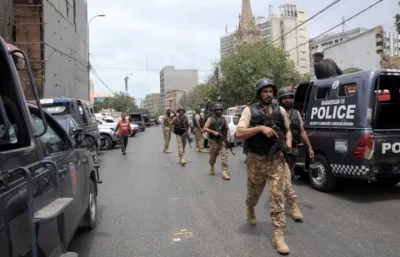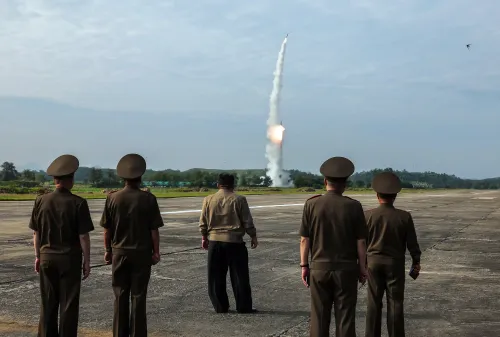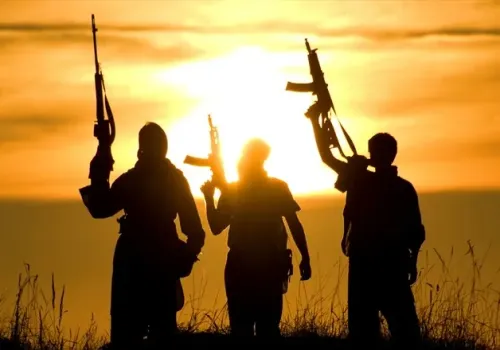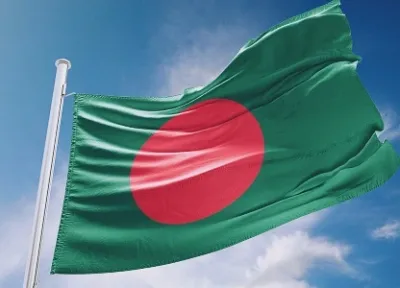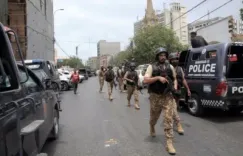Myanmar's Military Junta Denies International Journalists Access to Quake-Hit Regions
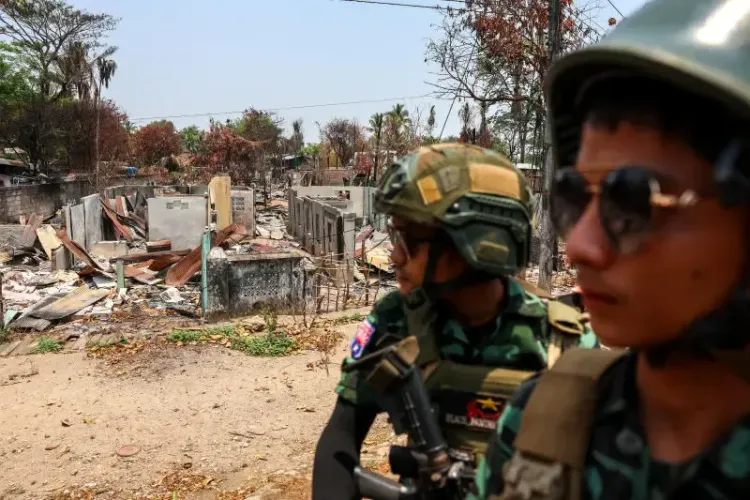
Synopsis
Key Takeaways
- Myanmar's junta has banned foreign media from entering quake-hit areas.
- The death toll from the earthquake has reached 1,700.
- Local journalists face severe restrictions on their reporting.
- Humanitarian aid is reportedly being hindered by the junta.
- 36 aftershocks have been recorded following the main earthquake.
Naypyidaw, March 31 (NationPress) The military junta of Myanmar has prohibited foreign journalists from entering the areas affected by the earthquake as the death toll has surged to 1,700.
The junta cited challenges related to accommodation, power failures, and water shortages as reasons for this ban.
"It is impossible for (foreign journalists) to arrive, stay, find shelter, or navigate around here. We want everyone to comprehend this," stated Zaw Min Tun, the spokesperson for the regime, in an audio declaration released on Sunday.
With local reporters already facing stringent limitations in Myanmar, the refusal of entry to international media raises serious questions about the junta's transparency in responding to this disaster.
Numerous reports indicate that the junta has also obstructed humanitarian assistance from reaching several affected regions not under its direct control.
Since the military coup in 2021, which ousted the democratically elected government led by Aung San Suu Kyi, Myanmar has been engulfed in a civil war involving various armed opposition factions.
Additionally, multiple media sources suggest that the junta has continued to carry out airstrikes across different parts of the disaster-stricken nation.
The global community is increasingly advocating for unrestricted access for humanitarian workers and independent journalists as the humanitarian crisis escalates in the wake of the devastating 7.7 magnitude earthquake that has caused widespread destruction, as reported by the media outlet Myanmar Now.
In a documented crackdown on media freedom, Myanmar Now reported that in 2023, its photojournalist Sai Zaw Thaike was detained while covering the aftermath of Cyclone Mocha and subsequently sentenced to 20 years in prison.
As of Monday morning, Myanmar's Department of Meteorology and Hydrology reported that 36 aftershocks, with magnitudes ranging from 2.8 to 7.5, have occurred.
The aftershocks followed a catastrophic 7.7-magnitude earthquake that struck Myanmar at 12:51 p.m. local time last Friday.
According to the country's State Administration Council on Sunday, approximately 1,700 individuals died, 3,400 were injured, and 300 remain unaccounted for following this major earthquake.
The powerful 7.7 magnitude earthquake, succeeded by a 6.4 magnitude aftershock just minutes later, impacted the Mandalay region of Myanmar, resulting in significant casualties and destruction across multiple countries.
The epicenter was located merely 20 km from Mandalay, the nation’s second-largest city, which has a population of 1.5 million. In response to this disaster, the National Disaster Management Committee has declared a state of emergency across the Sagaing Region, Mandalay Region, Magway Region, the northeastern part of Shan State, the capital Nay Pyi Taw, and Bago Region.

